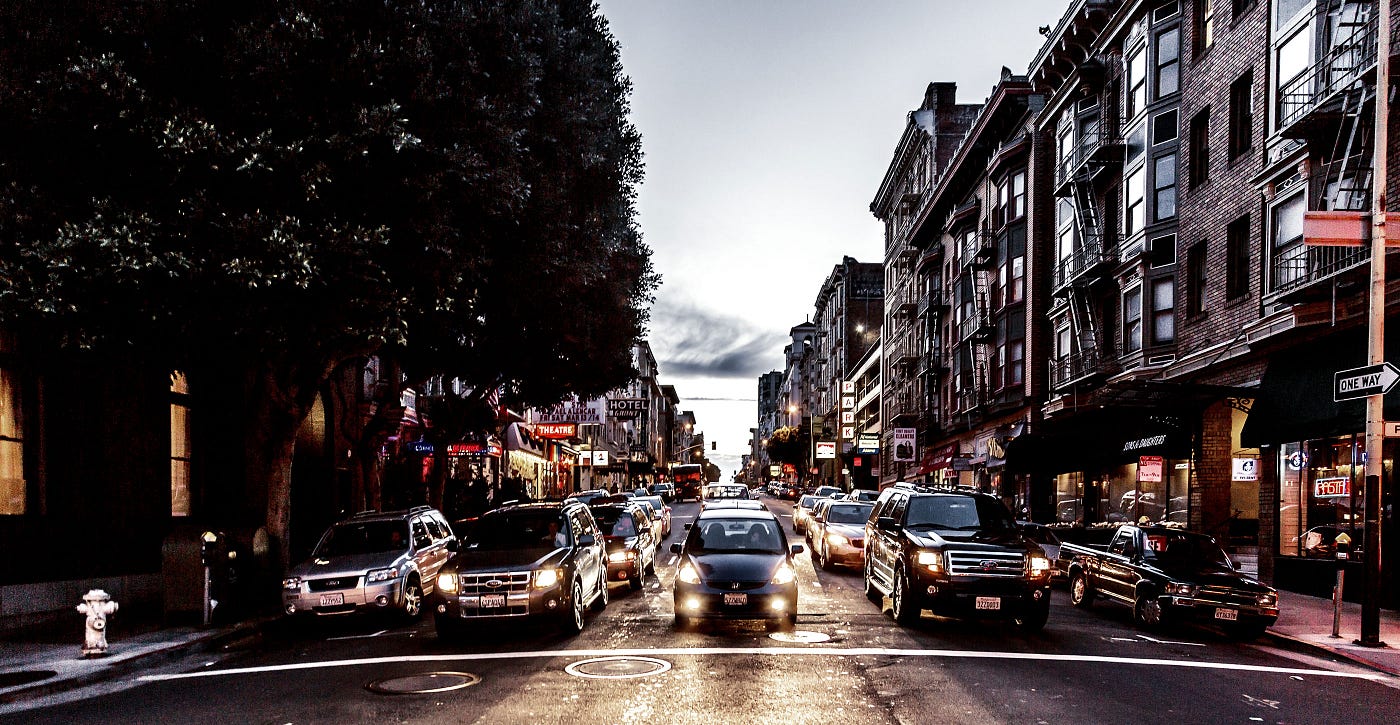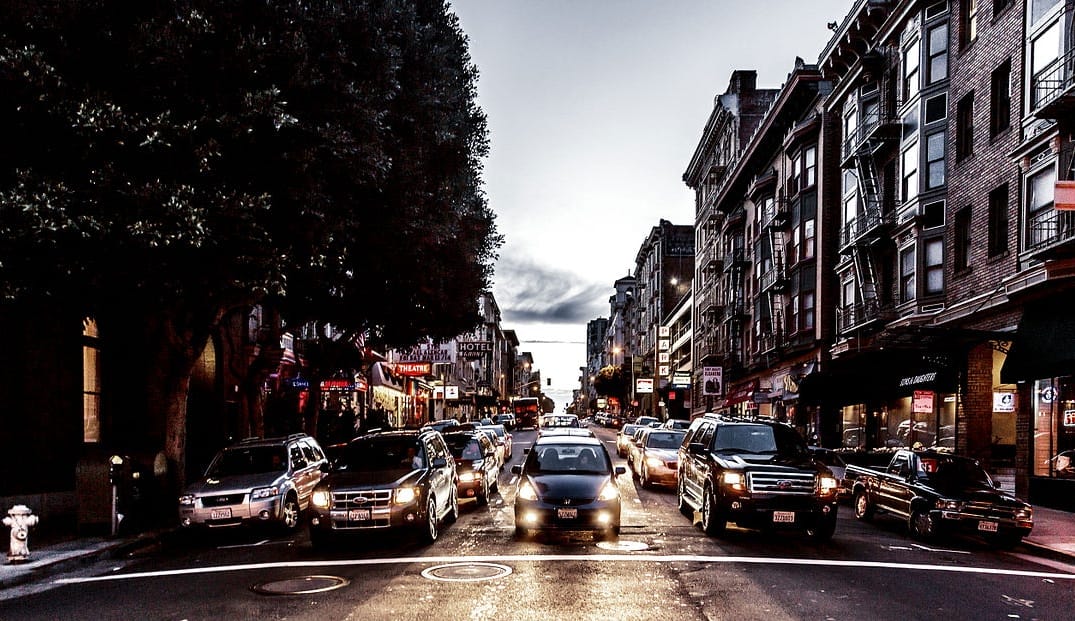By Noah Sanders

Let’s be frank: parking in San Francisco is a nightmare. We’re a dense city — more than 800,000 people on a seven by seven spit of land — with a surprisingly low number of on-street public parking spaces (265,000 as reported in 2010), and the quest to find an open slot for your vehicle can be one of the great frustrations of living in the City by the Bay. Parking isn’t a simple issue (nothing is in San Francisco), but according to the Examiner, city supervisors Mark Farrell and Malia Cohen think a large part of our current parking crisis is due to ubiquitous construction parking permits. You’ve seen them: plasticky, red-and-white signs decreeing a rare stretch of available parking is reserved for the dualies and cement mixers of some massive construction project. Anyone who ignores the signs is asking for punishment. Now, supervisors Farrell and Cohen believe they have a solution: the Construction Parking Plan Law.
On average, there are 1,251 active construction permits in play throughout San Francisco, with each of these permits taking over (again, on average) three public parking spaces, meaning that every single day, almost 4,000 parking spaces are taken up by a red-and-white construction permit. Even more infuriating, the planned construction often doesn’t occur, and the parking spaces go unused by either car-owning citizens or the construction companies that applied for the permit in the first place. In a joint statement made to the press last week, Farrell (who represents the Marina, Pac Heights, the Presidio, and part of Russian Hill) and Cohen (who represents Bayview-Hunters Point, Potrero Hill, Visitacion Valley, and part of Portola) addressed the situation head-on: “San Francisco’s construction industry is booming, and it’s no surprise that the sheer amount of construction work has significant impacts to the quality of life for our residents and in our neighborhoods.”
Farrell (whose district has the most construction permits at 258) and Cohen’s Construction Parking Plan Law seeks to impose a mandate demanding that anyone looking to obtain a construction permit must provide a “plan.” Construction companies will need to provide the number of parking spaces requested (and why they’re needed), the average number of employees, how long the project is going to take (currently, parking spaces can be permitted but sit unused for months at a time), and a tacit promise that if the spaces are unused for the day (or if work is finished), the spaces will be released to the public at 4 p.m. Basically, if you want the space, you’re going to have to tell the city and the public all the gritty details of your needs, and, most importantly, stick to them. Supervisor Farrell hopes the plan will help “our residents and our city get a better grip on the impact of on-street parking space losses during construction projects,” as well as help free up spaces that aren’t being used.
Potrero Hill Boosters president J.R. Eppler doesn’t see the Construction Parking Plan Law as an adequate solution to what he believes is a much bigger problem. Eppler says that parking problems caused by construction projects are just “a straw on the back of an already burdened camel.” Potrero Hill, part of supervisor Cohen’s District 10, has, in Eppler’s words, become “a parking garage for daytime commuters to SoMa and the Financial District.” In his opinion, addressing the construction issue isn’t looking at the problem comprehensively, it’s just trying to figure out that “last straw.” Eppler sees the process of submitting plans to the city as a small solution to a larger problem. “Today, you can walk through the neighborhood and see ‘No Parking’ signs with their dates scratched out and rewritten, or with missing information,” he says — and bigger problems loom. Eppler cites the increased population density (an expected 5,000 new folks in Potrero Hill in the next five years, according to his estimate) and the massive parking issues that will certainly cause. At the end of the day, “it’s not just a construction issue, “ Eppler says, it’s a complex parking issue that needs to be addressed with an equally comprehensive plan.
Truth be told, San Francisco is a city ready to burst. We’ve got too many people streaming in and not enough resources for everyone to share. Though it’s nice to see our governing body take a stab at dealing with the problems stemming from our steadily increasing population, time and time again we see programs and legislation that are just what J.R. Eppler is getting at: too little, too late. San Francisco is in the grip of some seriously complex growing pains, and though legislation like the Construction Parking Plan Law looks to address pieces of those problems, City Hall needs to start expanding its scope and hitting the full force of these issues head-on.
[h/t SF Examiner; photo courtesy of Davide D’Amico/Flickr]
Got a tip for The Bold Italic? Email tips@thebolditalic.com.







